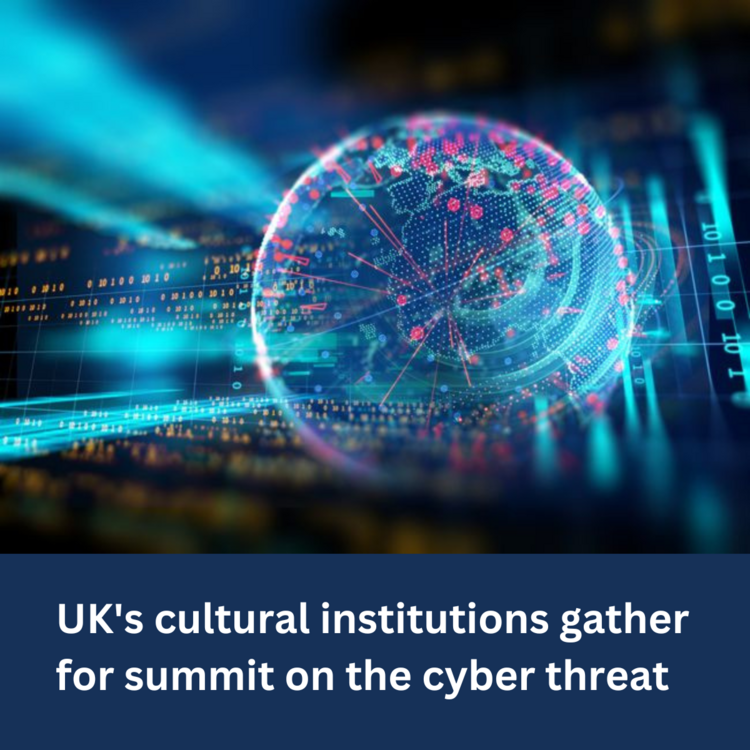UK's cultural institutions gather for summit on the cyber threat

Earlier this month, the National Cyber Security Centre – which is a part of GCHQ – and the Department for Culture, Media and Sport (DCMS) met with representatives from the UK cultural sector to discuss what can be done to protect institutions’ digital collections.
Online collections, which pool millions of digital records, enable cultural institutions to increase accessibility of their materials and hold unique social and cultural value to the wider public. In 2020 alone, the creative industries brought £103.8 billion to the UK economy.
This makes the cultural sector an attractive target to opportunistic threat actors who may seek to capitalise on and disrupt these institutions’ economic and societal value through ransomware, causing a loss of income not only to the organisations affected but also the nation at large.
Ransomware remains one of the most acute cyber threats for most UK businesses and organisations. The government is committed to making the UK an extremely unattractive target for ransomware attacks.
NCSC Director for National Resilience and Future Technology, Jonathon Ellison said:
“The ransomware model continues to evolve, but whatever face it takes, it remains the biggest day-to-day cyber security threat to UK organisations.
Effective preparation is central to preventing future ransomware attacks, and implementing NCSC advice, such as the simple protective measures outlined in our ransomware guidance, will help UK institutions to reduce their likelihood of being infected.
Maintaining proper cyber hygiene may seem unexceptional as a recommendation, but it comes full circle: robust cyber security improves resilience, and with resilience comes not only stronger defences that deter cyber criminals, but also a much more effective response and recovery process.”
Most ransomware attack victims are chosen opportunistically, rather than being targeted specifically, with criminals tailoring their methods of attack depending on what is most likely to yield payment.
But with digital infrastructure now ubiquitous in the creative industries, the NCSC wants to ensure the cultural sector is well-prepared against any attack.
NCSC advice includes
- There is no way to completely protect an organisation against malware infection, which is why adopting a ‘defence-in-depth’ approach is so important: this means using layers of defence with several mitigations at each layer.
- Preparation is critical. Following the NCSC’s Mitigating malware and ransomware attacks guidance will reduce not only the likelihood of becoming infected but also minimise the spread of malware throughout an organisation and the impact of the infection.
- If your organisation has already been infected with malware, there are various steps that can be taken to help limit the impact, as set out in the NCSC’s ransomware guidance.
- For individuals, the NCSC’s data breach guidance outlines actions to take following a breach.